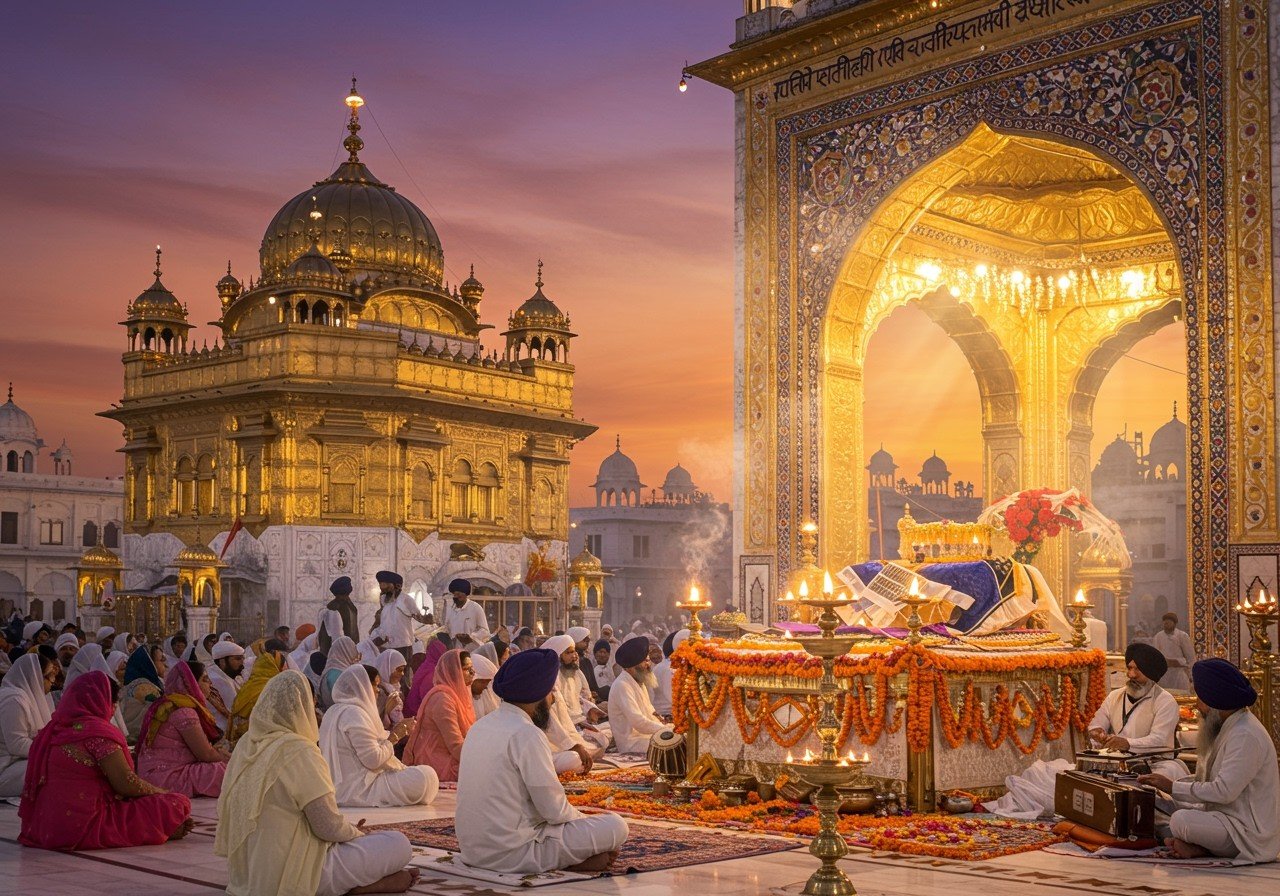
Navigating the journey of loss is never easy. In the Sikh faith, funeral customs, known as Antam Sanskar, offer a structured and compassionate path through grief, emphasizing spiritual solace and community support. These rites, steeped in tradition, provide a framework for honoring the departed soul with dignity and respect.
Understanding the Rituals
Sikh funeral rites are a beautiful blend of spiritual reflection and communal support, designed to ease the pain of loss and celebrate the soul’s onward journey.
First Steps: Immediate Arrangements
- Time is of the Essence: Funeral arrangements traditionally begin swiftly after death, ideally within three days. This reflects the Sikh understanding of the transient nature of the physical body.
- The Funeral Service: The ceremony is usually held quickly, often on the same day or the next, typically in the afternoon. This allows the community to gather and offer support during a difficult time.
Preparing the Departed with Reverence
- Washing and Dressing: The body is washed and dressed in fresh, clean clothes, a symbolic act of purification and respect.
- Honoring the Baptized: If the deceased was baptized, they are dressed in the five Ks (Panj Kakkar), articles of faith that represent a Sikh’s commitment to their spiritual path. These include Kesh (uncut hair), Kangha (a wooden comb), Kara (a steel bracelet), Kachera (a specific type of undergarment), and Kirpan (a small ceremonial sword).
The Funeral Ceremony: A Spiritual Farewell
- Location and Duration: The ceremony, typically lasting between 30 minutes to an hour, can be held in various locations—the family home, the Gurdwara (Sikh place of worship), a designated outdoor space, or the crematorium—offering flexibility to families.
- Prayers and Hymns: Prayers like Ardas (communal prayer), Japji Sahib (morning prayer), and Kirtan Sohila (evening prayer) are recited. Hymns from the Guru Granth Sahib, the Sikh holy scriptures, offer comfort and spiritual guidance to those grieving. Emotional eulogies are generally avoided, as the focus remains on the soul’s journey.
Mourning with Dignity and Respect
- Quiet Reflection: Sikhs traditionally mourn privately, avoiding outward displays of grief. The Gurdwara becomes a sanctuary for communal solace, where hymns are sung and prayers are offered.
- Respectful Greetings: It’s customary to greet the eldest family member first as a mark of respect. Sikhs greet each other with folded hands and a slight bow, or a handshake, showing unity and support during a difficult time.
Dress Code: Modesty and Respect
- Appropriate Attire: Smart, modest clothing is essential, reflecting the solemnity of the occasion. While white is the traditional color of mourning in many Asian cultures, black, navy, or gray are acceptable, particularly in Western settings.
- Head Coverings: Both men and women cover their heads as a mark of respect. Men traditionally wear a turban or a hat, while women wear a headscarf.
Cremation: The Final Journey
- Preferred Practice: Cremation is generally preferred, symbolizing the release of the soul from the physical body. Burial is acceptable if cremation isn’t feasible, demonstrating adaptability while honoring the core belief.
- Respectful Viewing: If the body is brought home or to the Gurdwara, the coffin may be opened briefly for a final viewing but typically remains closed.
After the Ceremony: Continuing the Remembrance
- Akhand Paatth: Following the funeral, family and friends gather for Akhand Paatth, a continuous reading of the Sri Guru Granth Sahib, offering continued spiritual support and strength.
- Scattering the Ashes: The ashes are typically scattered over water or a place of significance to the deceased. Headstones and monuments are discouraged, emphasizing the soul’s transcendence beyond the physical realm.
Donations and Flowers: A Matter of Personal Preference
- Traditional Practices: While flowers and donations are not traditionally part of Sikh funeral rites, it’s always thoughtful to consult the family’s wishes. This shows respect for their individual preferences and needs during a sensitive time.
Poojn.in: Supporting Your Spiritual Needs
At poojn.in, we understand the significance of these rituals and offer a dedicated Dashakarma section to provide all the necessary items for Bhog and Antim Ardas ceremonies. You can find everything from pure cotton cloths and incense sticks to traditional diyas, offering plates, and Kalash sets. We also offer a wide selection of Pooja Samagri, including Hawan Samagri and diya sets.
Our online store makes it convenient for you to find authentic, ritually pure items delivered right to your doorstep. With poojn.in, you can focus on honoring your loved ones while we take care of the practicalities.
Embracing Tradition in a Modern World
Sikh funeral customs offer a profound journey through faith, compassion, and deep respect for life’s cycle. They provide comfort and guidance as we navigate the difficult path of grief. By understanding these meaningful traditions, we honor not only the departed soul but also the enduring spirit of Sikhism, a faith that emphasizes love, community, and the eternal truth of Waheguru.


